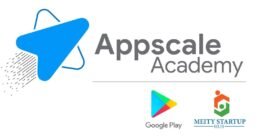Between lifting a combined 200 kilograms (nearly 441 pounds) at a world championship, winning a bronze medal and qualifying for the 2024 Paris Olympics, weightlifter Jourdan Delacruz doesn’t have a lot of spare time. Ranked fourth in the world in her weight class, she spends her days training, traveling and preparing for her second trip to the Olympic Games.
So when it comes to refueling her body after a long day, Delacruz has no interest in scrolling through endless recipes. Instead, she turns to AI for help and recently made a tasty chicken stir-fry.
“I’ll say, ‘Give me high-protein dinner ideas that are sports dietitian-approved’ for very specific results, so I don’t get a million dinner ideas,” says Delacruz. “It’s been fun to explore, because I feel like I get in a rut with dinner.”
Using AI to learn about nutrition is just one part of a new technology project that Delacruz and other women athletes are participating in to help improve their well-being, performance and careers as they train for a spot at the Olympics or Paralympics. Or, in the case of Delacruz, who recently qualified, a spot on the podium.
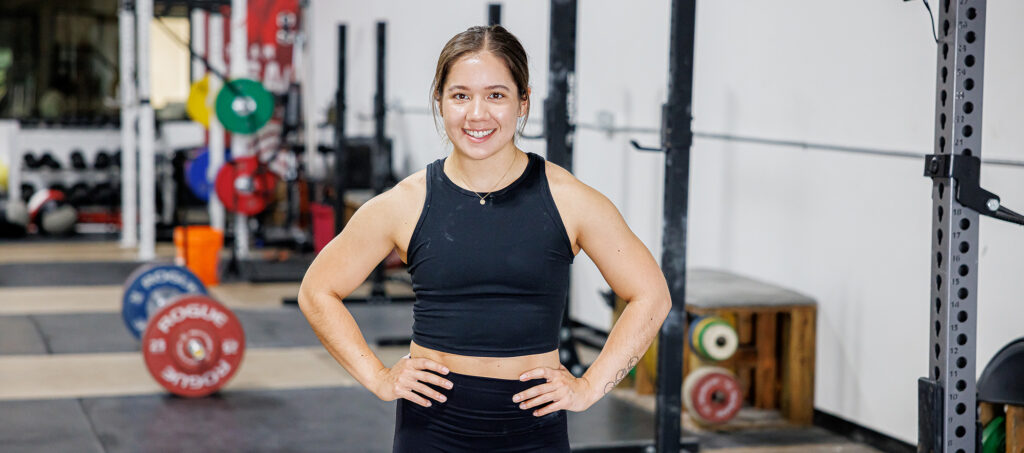
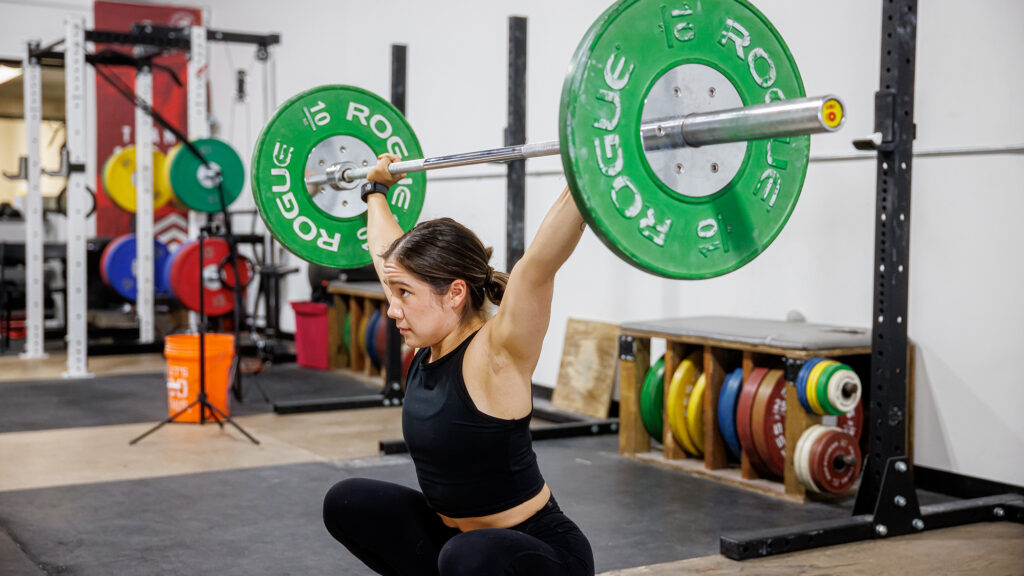
The athletes are using Microsoft tools for research, data analysis and more with expertise from Parity, a sports marketing and sponsorship organization focused on closing the gender income gap in professional sports. The company connects women athletes with high-profile brands, including Microsoft.
“Generative AI has the ability to democratize access to a lot of capabilities like data analytics that have been fairly expensive to access, and things that are expensive to access are typically not available to women athletes,” says Phillippa Thomson, chief data scientist at Parity. “Microsoft is an amazing partner, in that we’re very aligned in how we think about equity in sports.”
The athletes were already tracking their performance data with their coaches, so Thomson is largely helping them analyze things outside the gym: sleep, nutrition, mood and self-care. They’re logging their data in Microsoft Excel for Thomson to analyze, as well as using Microsoft Copilot to make their busy lives a little easier. Thomson also looks forward to helping the athletes use Copilot in Excel so they can explore data trends themselves without having to be statistics experts.
“The benefit of this particular project is that the barrier to entry to start using data with Microsoft products is very low, because they’re designed to be accessible to a lot of people,” she says.
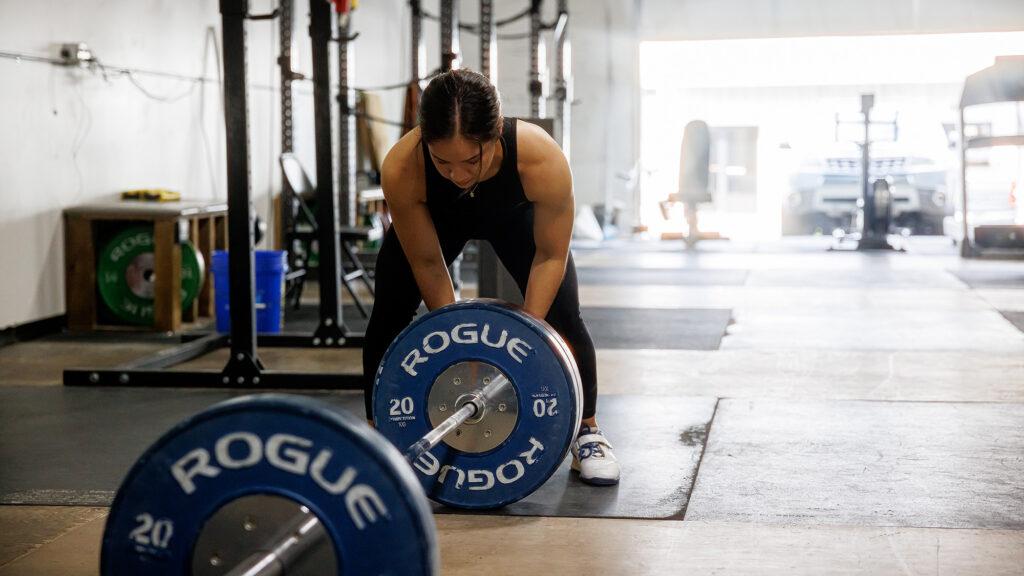
Jourdan DelacruzJourdan DelacruzJourdan Delacruz
“I hope I’m inspiring girls and women to try strength-based sports.”
“I hope I’m inspiring girls and women to try strength-based“I hope I’m inspiring girls and women to try strength-based
sports.”sports.”
For Delacruz, who competed at the 2020 Tokyo Olympics, tracking well-being data is a way to holistically improve her performance, whether it’s sleeping better, practicing mindfulness or logging her nutrition more accurately. In addition to researching recipes with Copilot, she found new stretching exercises with the tool.
Her use of digital technology also reflects her passion for science and advocacy for women athletes. A registered dietician student and founder of the platform Herathlete, Delacruz wants to give evidence-based sports nutrition and performance support to women athletes and address issues affecting them like menstrual cycles and bone density. She says data analytics is important for competitive performance and keeping athletes safe and healthy.
“Having more women in STEM and sports science means we can study more of these topics,” says Delacruz, who wants to be a role model for all women.
“I hope I’m inspiring girls and women to try strength-based sports,” she says. “Even if you don’t want to do weightlifting full-time, it’s great when a woman is stronger.”
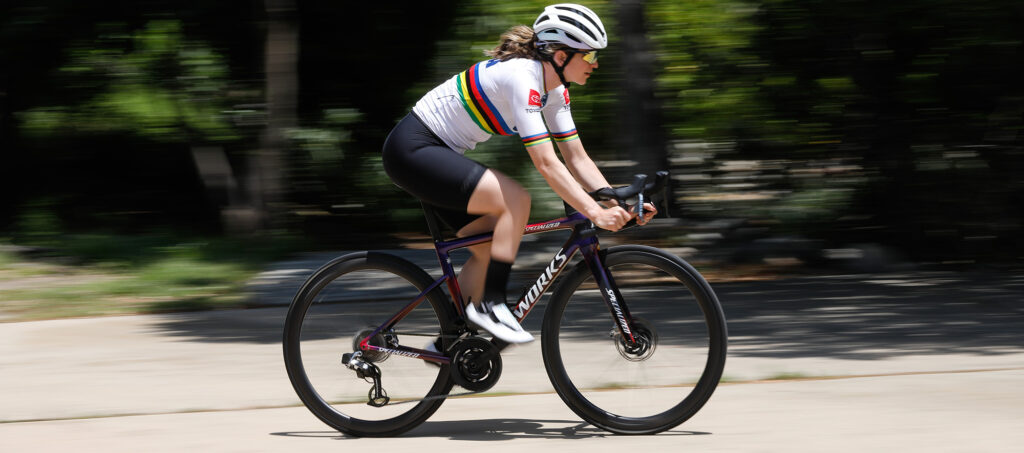
Samantha BoscoSamantha BoscoSamantha Bosco
“I feel the most at home and capable when I’m on my bike. It makes me feel the strongest.”
“I feel the most at home and capable when I’m on my bike. It“I feel the most at home and capable when I’m on my bike. It
makes me feel the strongest.”makes me feel the strongest.”
A self-proclaimed “data nerd,” Paralympic and world champion cyclist Samantha Bosco wears a sleep tracker, logs her macronutrients and pores over biometric and bike data in a push to get to the Paris Paralympics. The analytics are helping her make incremental improvements like figuring out how much protein she needs for recovery and how much hydration she needs to sleep well.
“It’s helped with really fine-tuning those little things that add up,” she says. “It keeps my motivation up and reminds me of why I’m tracking the data in the first place.”
Bosco has long embraced digital technology like analytics to facilitate her achievements, which include multiple world championship gold medals and two Paralympic bronze medals in 2016. She also qualified for the 2020 Tokyo Paralympics but didn’t participate due to a serious cycling accident.

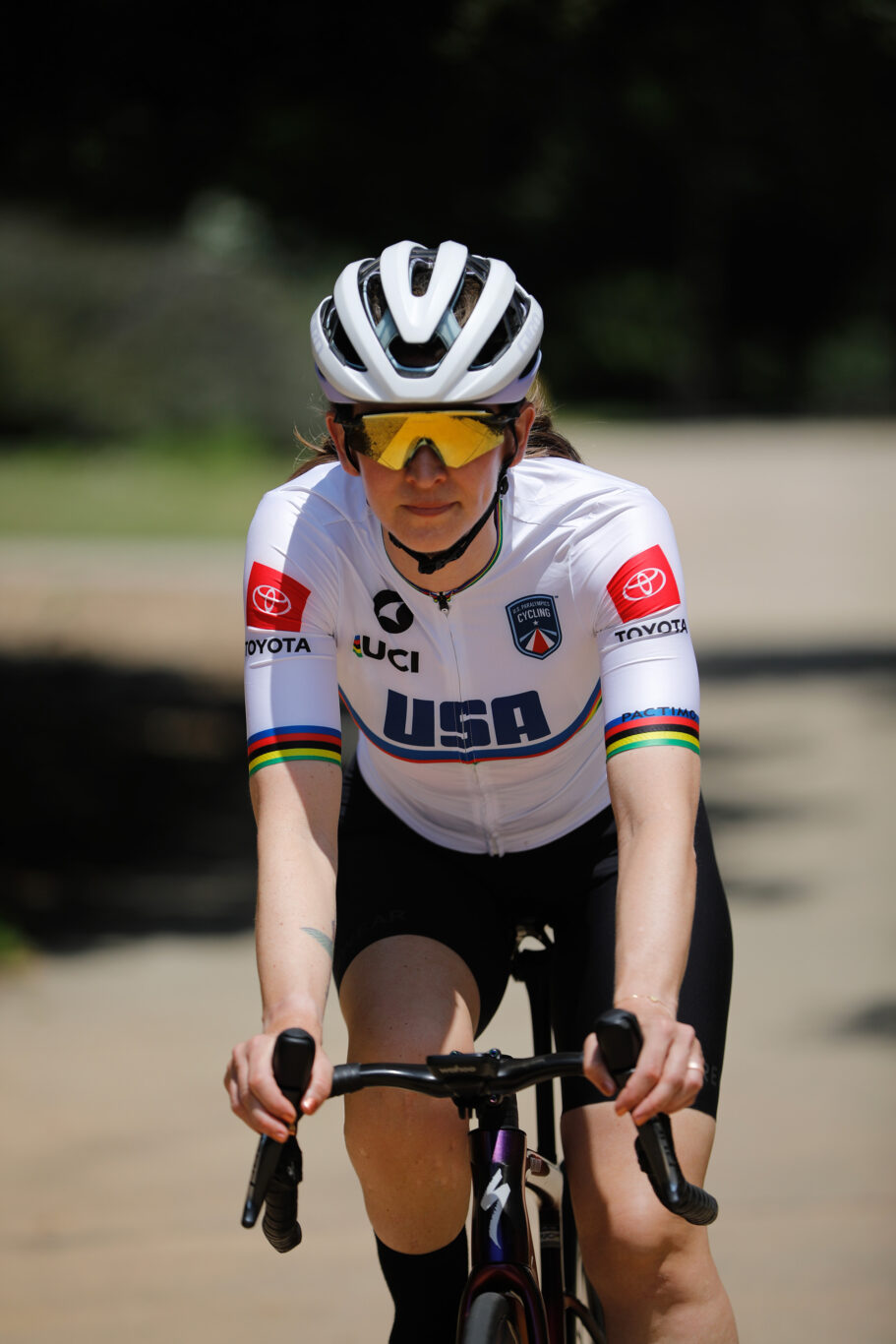
These days, Bosco often turns to Copilot to learn new ways to improve health and fitness. She has used it to discover new mobility exercises, jokes to relieve stress, songs for workouts, tips for improving sleep and vegan restaurant recommendations when she travels. She’s eager to try the tool in Excel, despite being a spreadsheet expert with a master’s degree in accounting.
“I think having it be my data assistant to help free up some time is exciting,” she says. “It can help take off the stress of having to figure things out yourself.”
Bosco’s goals as a Paralympian aren’t just about being an athlete but also an advocate for people with disabilities. Born with a bowed tibia, she had several surgeries to address the condition that left her with a shorter, atrophied leg. She spent three years on crutches as a child and developed her love of cycling and competing through bike rides with her dad.
“I feel the most at home and capable when I’m on my bike. It makes me feel the strongest,” she says. “My parents were really big on not letting my disability define me, so I feel like I’m an advocate by showing people that they’re capable of so many things.”
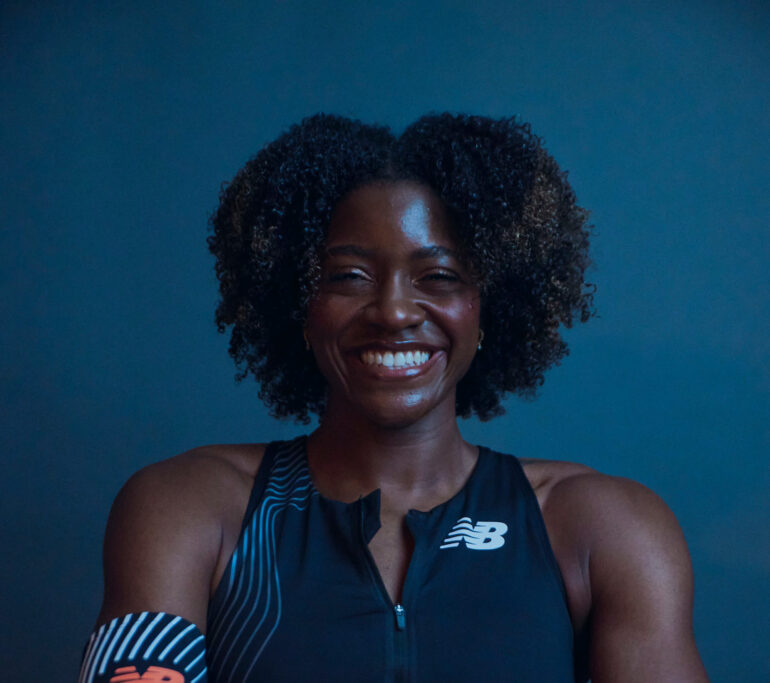
Kendall EllisKendall EllisKendall Ellis
“As someone who was a little resistant with AI, I’ve found that Copilot has shown me the convenience of having a fast answer to my questions and helpful feedback to my creative blocks.”
“As someone who was a little resistant with AI, I’ve found that“As someone who was a little resistant with AI, I’ve found that
Copilot has shown me the convenience of having a fast answerCopilot has shown me the convenience of having a fast answer
to my questions and helpful feedback to my creative blocks.”to my questions and helpful feedback to my creative blocks.”
For Olympic medalist and sprinter Kendall Ellis, tracking her mood and daily activities has helped reinforce good habits for mental health. A gold and bronze medalist at the 2020 Tokyo Olympics, Ellis has talked openly about her anxiety, which emerged in childhood as panic attacks before competitions and often involved a lot of negative self-talk.
Analyzing her mood and time spent sleeping, using social media and hanging out with friends have helped Ellis realize the importance of connecting with loved ones. The project has motivated her to be more deliberate in getting together with people who make her feel good.
“As an introvert, I do like spending time alone, and often we’re told as athletes that anything outside of our sport is a distraction,” says Ellis, a 400-meter specialist. “But I also enjoy hanging out with my friends, and it’s nice to have the data to support that. I think the brain loves a logical response to things.”
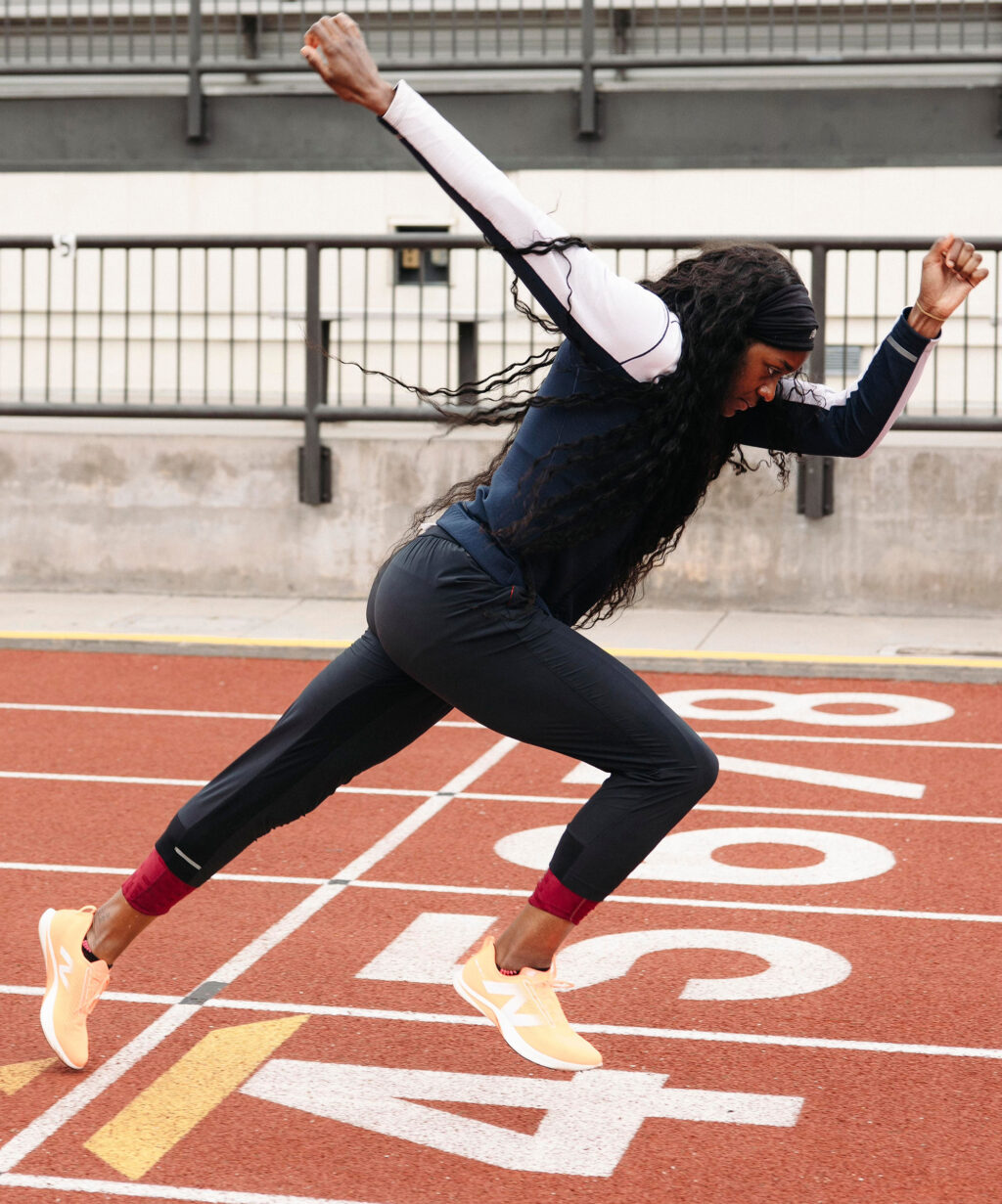

She also spends less time on social media and makes a point of seeing friends before a competition, when she often feels her anxiety rising despite being ranked among the world’s best athletes. The changes have helped her feel more confident and enjoy her sport more.
“The data gives me support to lean into the things I enjoy and that helps me go into competition with a clear head and a happy space,” she says.
The Parity project has even helped Ellis be more comfortable around AI: One of the first things she did was ask Copilot how to use Copilot. She also asks the AI tool for content ideas for her social media, which makes the creative part of building her following easier when she feels stuck.
“As someone who was a little resistant with AI, I’ve found that Copilot has shown me the convenience of having a fast answer to my questions and helpful feedback to my creative blocks,” she says.
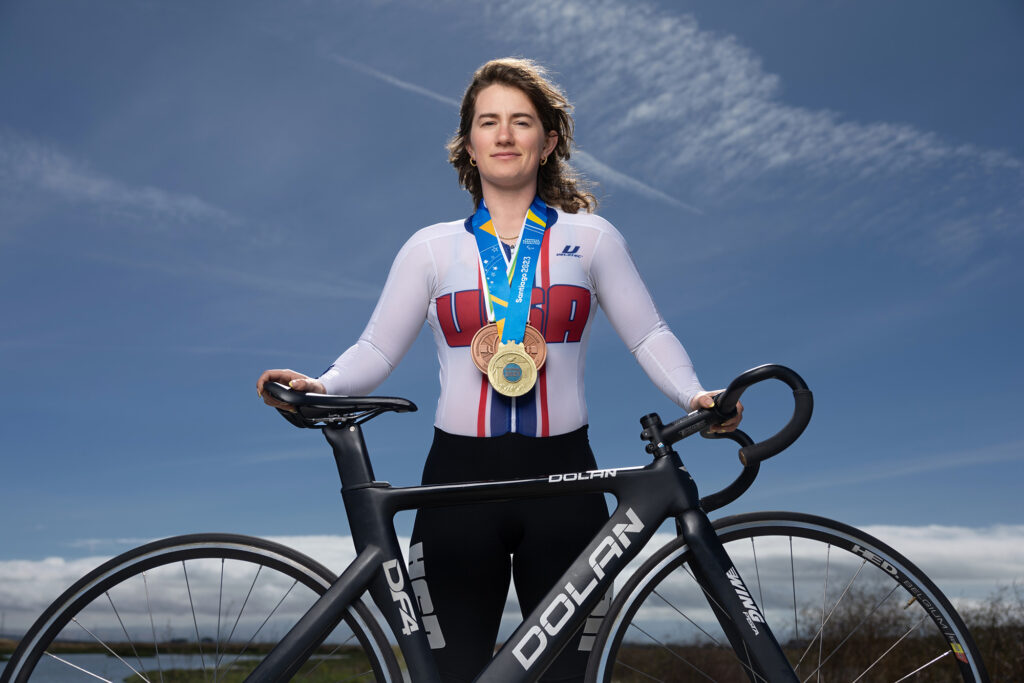
Skyler EspinozaSkyler EspinozaSkyler Espinoza
“Cycling is a cool environment for us to push our limits and learn about ourselves, and I think this data project has been very helpful for that self-reflection.”
“Cycling is a cool environment for us to push our limits and“Cycling is a cool environment for us to push our limits and
learn about ourselves, and I think this data project has been verylearn about ourselves, and I think this data project has been very
helpful for that self-reflection.”helpful for that self-reflection.”
Tandem cyclist Skyler Espinoza was initially skeptical of tracking her well-being data. Her training as a guide for the U.S. Paralympic Trials was already heavily measured, and the idea of tracking more data felt stressful.
But working with Parity allowed her to customize the metrics she wants to analyze, such as her resting heart rate, mood and time spent at home or on the road. She also tracks words she uses when journaling notes in Excel about daily things like having a nice dinner or walking in the sun.
After seeing her trend of lower moods when she travels, she has become more intentional about self-care, like packing a nutritious dinner for a long flight or spending time in nature.
“It’s been helpful to be more cognizant of what I can do to make a travel day less stressful and actions I can take to make my mental health better,” says Espinoza, an able-bodied guide for her tandem partner, Hannah Chadwick, who has a visual disability.
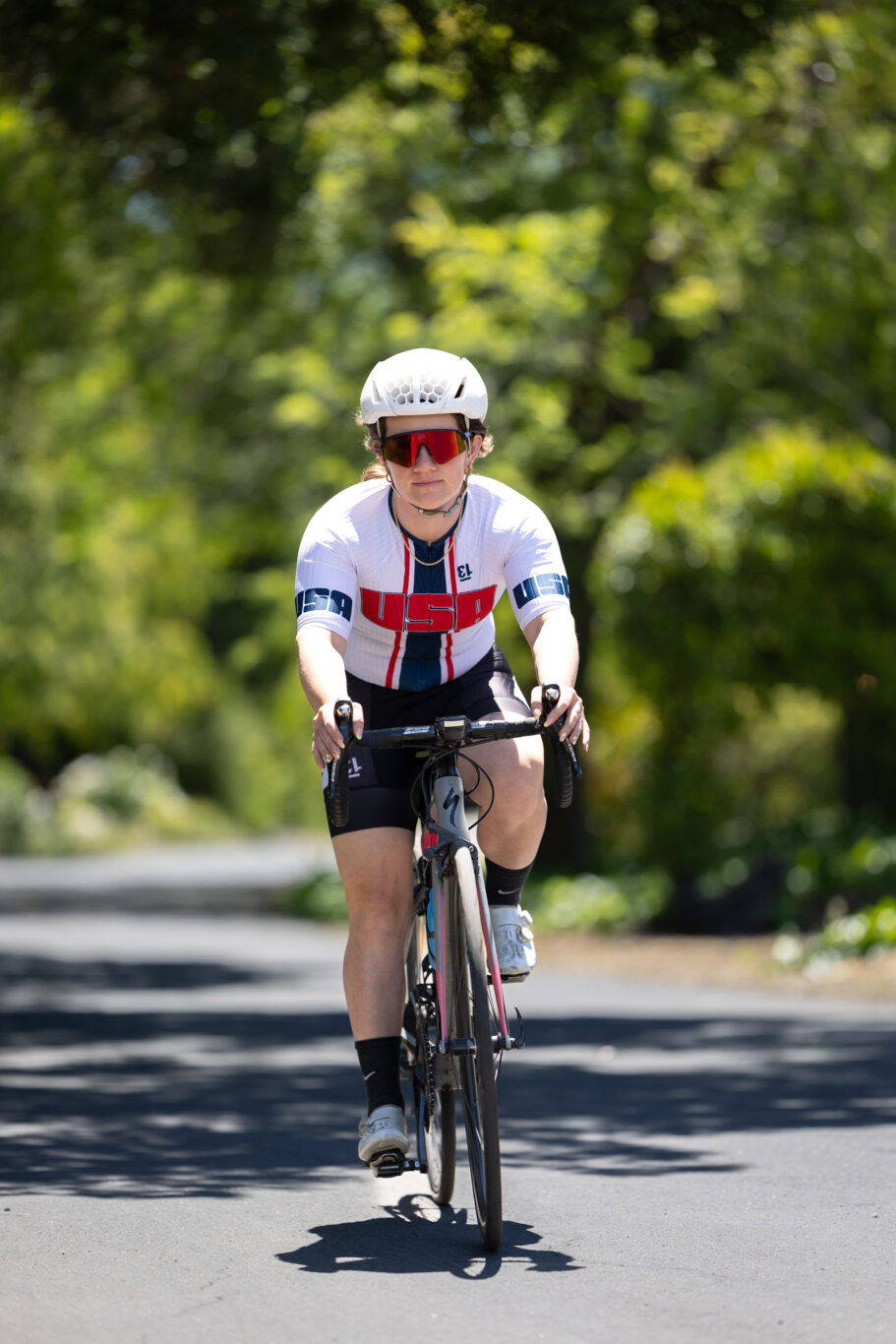
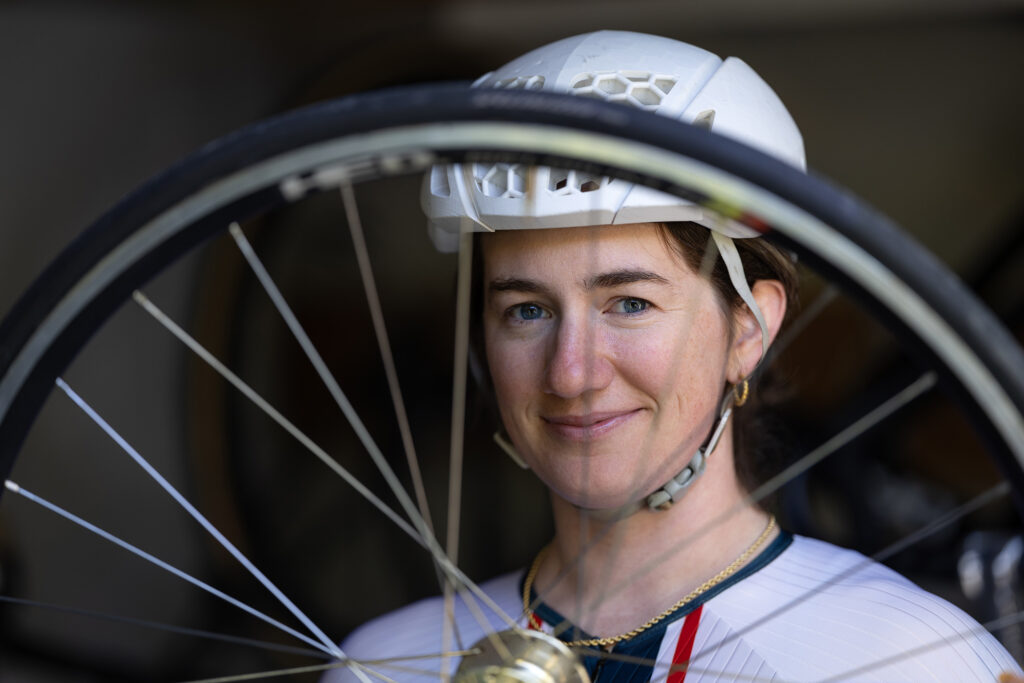
Espinoza is also building a sports community through her writing and asked Copilot for help on a post about supporting teammates after this year’s para-cycling world championship. She and Chadwick had strong performances as a tandem pair but had to compete against their U.S. teammates, a difficult part of international events. The tool generated a draft that helped her create a compassionate post on a tough topic.
“I’m still learning about AI, and I’m definitely curious about using it as a tool for creativity,” she says.
The digital tools are paving the way for Espinoza to reach her goals of being a supportive guide for her partner, enjoying her career, growing as an athlete and making the Paralympics.
“Keeping Hannah safe and making her feel empowered are big goals of mine, but I also want to see how this changes me,” she says. “Cycling is a cool environment for us to push our limits and learn about ourselves, and I think this data project has been very helpful for that self-reflection.”




